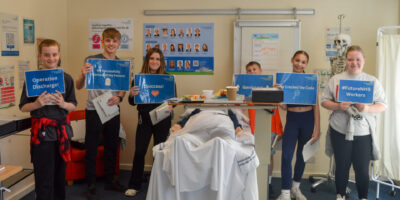Like many NHS hospitals across the UK, Doncaster and Bassetlaw Teaching Hospitals (DBTH) has felt the full force of COVID-19 since the pandemic began in March 2020. During peaks in related activity, the Trust saw admissions rise, waiting times unfortunately increase, and unprecedented challenges made hard due to periods of staff shortage because of required isolation, shielding as well as sickness absence for other reasons.
As the pandemic began, the Microbiology team at the Trust, which is housed at Doncaster Royal Infirmary, were sending their tests to Sheffield Teaching Hospitals. However, given the limited capacity at the time, this only allowed for only 50 swabs to be checked per day, and as cases rose, so did the pressure on the testing systems.
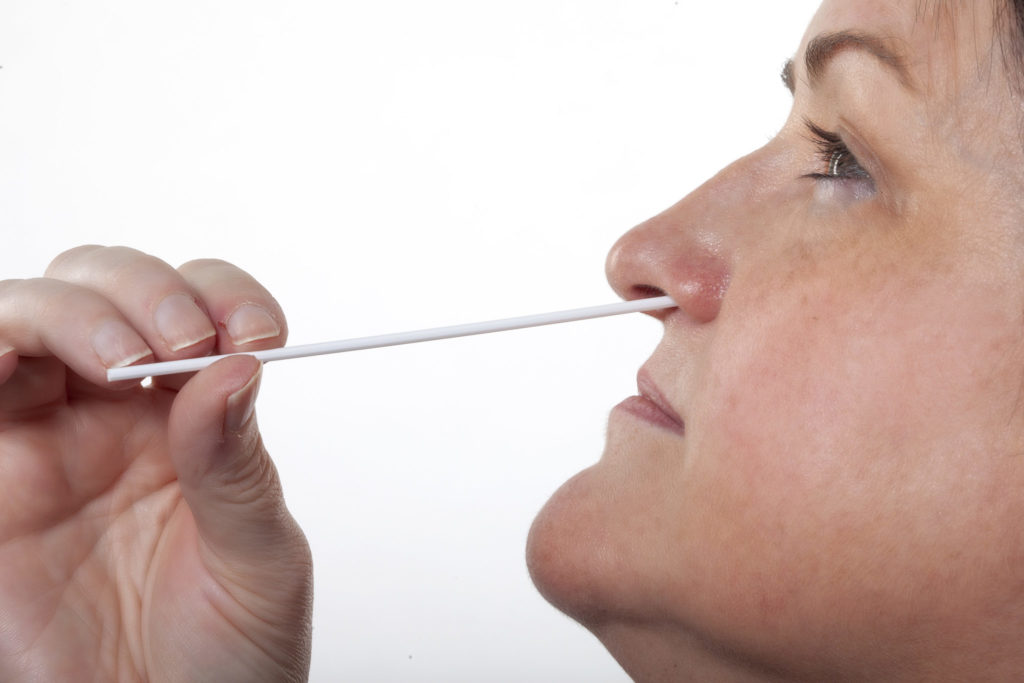
While an in-house testing solution was implemented with incredible speed using Polymerase Chain Reaction (PCR) screening, the Trust still had a need for rapid tests, with results coming back in a matter of minutes, ensuring that patients were allocated onto the most suitable care pathway within the hospital.
Miriam Boyack, Lead Nurse for Infection Prevention and Control at DBTH, explains: “During peaks of activity, as we saw in November 2020, it became evident we needed a rapid testing solution. The incredible efforts of our Microbiology team meant that, in-house, we were able to turnaround tests within 12 hours, which is a fantastic achievement, but we needed an even quicker solution.”
Healthcare professionals within the Trust needed a quick and effective test, which could be performed upon entry to the hospital, in order to correctly triage them to the appropriate bays and mitigate any further risk.
A promising development happened in November 2020, when the organisation received lab-free sample-to-answer RT-PCR test equipment.
These tests enabled the hospital to conduct up to 85 extra tests per day, each taking an average of an hour and a half to return a result. However, despite best efforts, this the turnaround time was still behind the ever-increasing demand, affecting patient flow into the hospital.
Like so many across the country, the emergency departments (ED) in both Doncaster Royal Infirmary and Bassetlaw Hospital faced higher numbers of patients with respiratory symptoms presenting in the first wave of the pandemic. When the second wave came in September 2020, the number of patients presenting with similar issues grew along with the number of patients presenting with non-COVID related conditions, increasing numbers to exceed pre-pandemic levels.
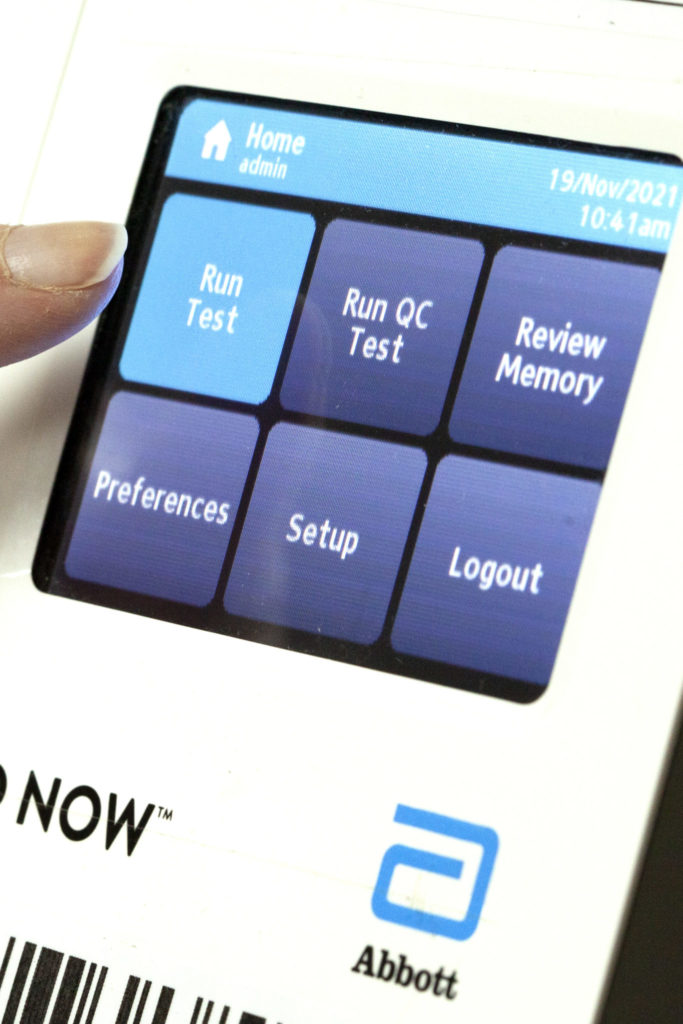
“In the months leading to the winter of 2020 we saw the impact on our patients’ and their loved one’s lives from COVID-related illnesses. A fast and reliable testing method would help us fight against COVID-19 tremendously,” says Miriam.
“It was devastating to many of us on the front-line caring for patients. As we witnessed, despite all our best efforts and life-saving intervention treatments, mortality was rising as was infection within our communities.”
In January 2021, the Trust received its first ID NOW™ machines for molecular point-of-care testing, which can detect novel coronavirus in less than 13 minutes. Developed by global healthcare company Abbott, ID NOW is a rapid, instrument-based, isothermal system for the qualitative detection of infectious diseases. ID NOW machines, which were used at the hospital before the pandemic to detect common respiratory conditions among its patients, were approved for use to detect COVID-19 in Europe in August 2020.
Initially the hospital was given seven machines, which were spread across three departments, including four in ED, two in paediatrics and one in maternity. The staff adapted quickly to the new machines and felt the benefits immediately. Importantly, training times were kept to a minimum due to the simple nature of the technology.
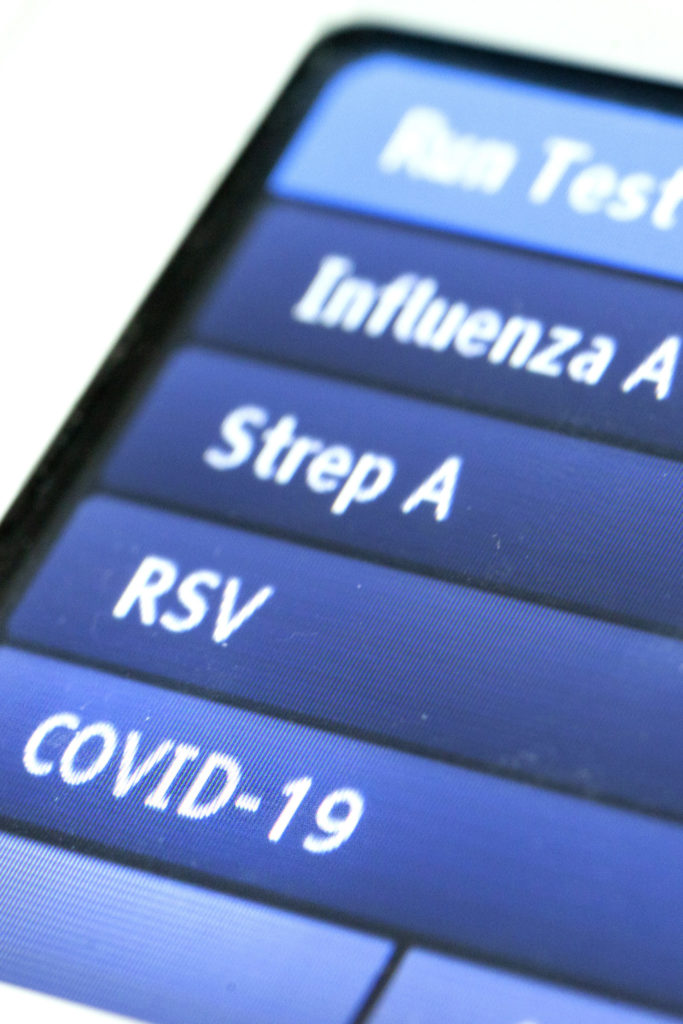
Time became a huge benefit afforded by Abbott’s ID NOW, and it saw the biggest change in the hospital’s processes around COVID efficiency. With results in minutes, rather than hours, patients were triaged upon entering the hospital, meaning that those with the most severe symptoms could be treated as a priority and placed in the correct areas of hospital, so as to avoid any potential for cross-infection.
Miriam continues: “With the ID NOW machines, we are able to confirm a positive result within a few minutes, and the maximum time we had need to wait for a negative result is 13 minutes.
“The switch from a 1.5 hour to a few minutes wait completely transformed our patient flow, allowing the team to work efficiently to reduce nosocomial spread within our services and subsequently the risk of outbreaks in COVID-free areas.”
Previously, incubation periods caused a significant issue within the hospital, with some patients becoming ‘close contacts’ that led to prolonged isolation periods across many areas of the building. With the introduction of the ID NOW, this issue was reduced considerably as it was used to make an informed decision about a person’s risk to other patients, which was then validated by PCR testing – but given the sensitivity and accuracy of both tests, this correlated in most cases.
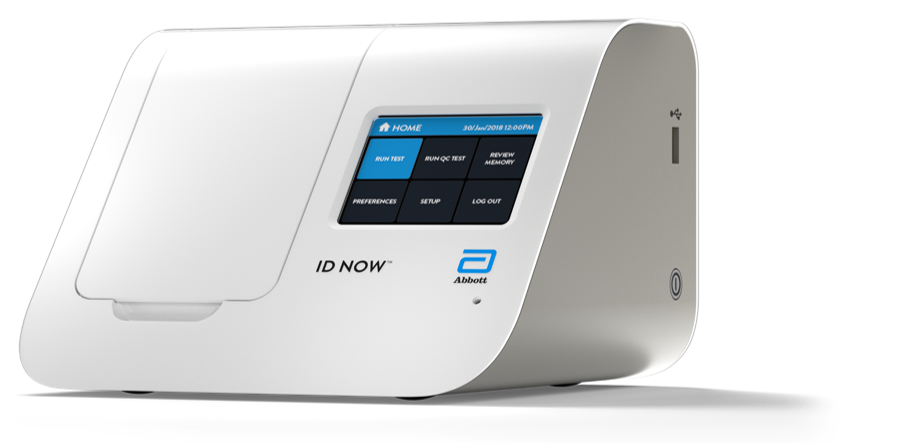
Over time the Abbott ID NOW is being used to test some groups of patients prior to discharge so that a timely and safe discharge can be facilitated, ensuring that the most vulnerable service users are not waiting in hospital environments any longer than they have to be. This also reduces the risk of further infections and creates capacity sooner than may otherwise be, for patients coming into hospital.
Since the introduction of the Abbott ID NOW the Trust has undertaken more than 27,000 rapid tests, and, as of November 2020, is currently analysing around 100 tests per day. Currently, the Trust has access to the use of over 20 ID NOW machines, empowering the workforce to make better informed decisions and reduce the risk of nosocomial spread of COVID-19.
As the weather turns colder and winter pressures become more apparent, the Trust has refreshed training for its workforce to use Abbott’s ID NOW to also detect for influenza, and respiratory syncytial virus (RSV) in children, in addition to COVID-19. This will provide more comprehensive protection against the spread of winter ailments that are expected to see hospital admissions rise. Miriam and her team are also looking at ways they can leverage the machines further as part of an outreach programme to support care settings in the wider community.
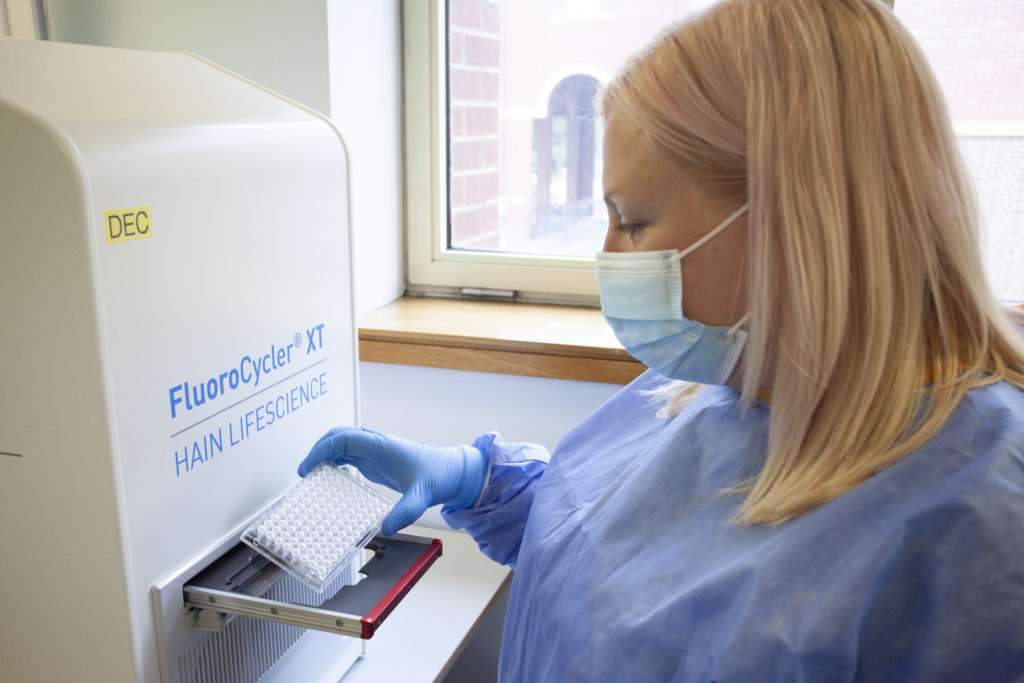
Miriam concludes: “ID NOW has been invaluable in out fight against COVID-19 within our hospitals. Not only has it reduced test waiting times, and improved patient flow, but it has also been used in testing of staff to support business continuity. Ultimately, it has helped us during unprecedented times and supported us to overcome significant challenges.
“The peace of mind it gives to our staff is invaluable. It allows them to continue to serve our community with confidence, helping to keep our patients as safe as possible, protected and in the best health they can be in while in our care.”



